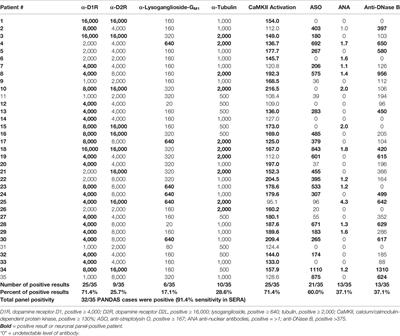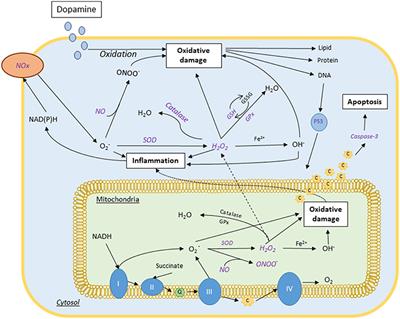ORIGINAL RESEARCH
Published on 24 Jun 2020
Autoantibody Biomarkers for Basal Ganglia Encephalitis in Sydenham Chorea and Pediatric Autoimmune Neuropsychiatric Disorder Associated With Streptococcal Infections

doi 10.3389/fpsyt.2020.00564
- 23,701 views
- 53 citations



